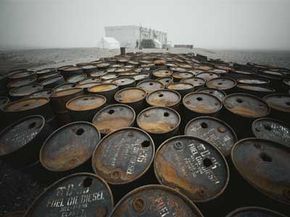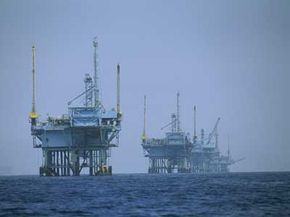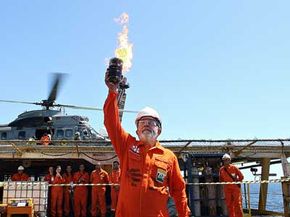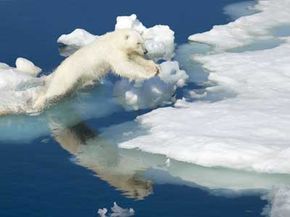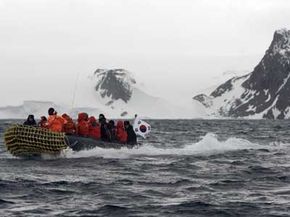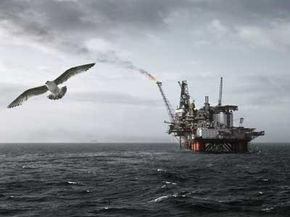If you could gaze back through 500 million years of history, you'd find the oceans of prehistory swarming with microscopic life. Tiny floating plant and animal life drifted through the seas, spurred on by cooling ocean temperatures and an atmosphere that was rapidly reaching the levels of breathable oxygen we can't live without. Ironically, the humans that eventually evolved out of these primordial waters now depend on another byproduct of this early era: petroleum.
For millions of years, these vast clouds of plankton burned through their brief lives, littering the ocean floors with their dead. In time, mud and sediment covered these plains of decaying organic matter. Sealed off from oxygen, heat and pressure very slowly cooked this dead matter into subterranean reservoirs of petroleum in the form of liquid oil, natural gas and oil shale.
Advertisement
Today, Earth's petroleum reservoirs are buried under massive layers of rock. And on a planet that's 71 percent water, much of that petroleum is also underwater. Humans have spent the last century developing better ways to extract these precious deposits, but we're still discovering new offshore petroleum reserves. Plus, environmental laws, treaties and the limits of human technology continue to keep some of these reservoirs just out of the reach of the global oil industry. But, in a world that consumes more than 80 million barrels a day, you can rest assured no one has forgotten what riches these off-limits regions may contain [source: CIA].
Under the United Nations' Law of the Sea treaty, a coastal country can lay claim to coastal waters extending up to 200 nautical miles off its shoreline. A country can request up to 350 nautical miles if officials can prove the area is part of the country's continental shelf by May 2009. The continental shelf is the sloping undersea plain that runs from dry land to the deep, open ocean.
Oil companies are frothing at the mouth to sink their drills into the ocean's untapped fossil fuel riches. In this article, we'll look at the five offshore petroleum reserves they'd most like to drain dry.
